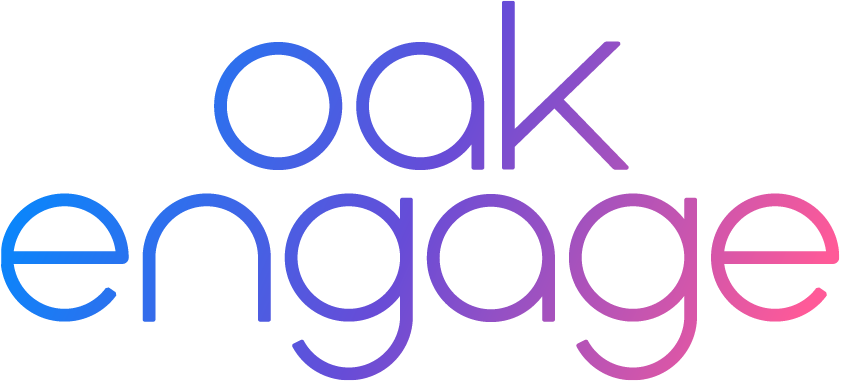Struggling to increase employee engagement in your organisation? We know how you feel!
According to Gallup only 15 percent of employees are engaged in the workplace.
Don’t worry! This blog is full of employee engagement ideas that you can put into practice.
Just in case you were wondering, here’s what we’ll cover:
- What is employee engagement?
- Why is employee engagement important?
- 10 steps to improve employee engagement
Key Takeaways
- Gallup found engaged business units are 18% more productive.
- Implementing a company intranet will massively improve employee engagement in the workplace.
- Highly engaged workplaces saw 41% lower absenteeism
- Improving employee engagement does have to be difficult to achieve.
Want a Quick Summary of the Best Tips to Improve Employee Engagement? Watch the Video Below
Credit: Music by Pixabay
What Is Employee Engagement?
Employee engagement is the level of enthusiasm and dedication a worker feels toward their role and the goals of the organisation. Generally, engaged employees are emotionally or personally connected to the work they do and don't just show up their pay.
Engagement impacts nearly every aspect of your company, including profitability, revenue, customer experience, employee turnover, and more.

Why Is Employee Engagement Important?
Research shows that 92% of business executives believe that engaged employees perform better, boosting the success of their teams and the outcomes of their business.
Sounds great, right?
That's because it's vital to any business, regardless of size or financial standing.
In fact, your employees are vital to the success of your business.
Whilst many companies may view their products as their biggest asset, they're failing to notice that their people are what make their cogs turn.
Companies that value their employees will reap the rewards of a dedicated, passionate and skilled workforce.
Here are 3 key business areas that are impacted by employee engagement:
Higher Employee Retention and Employee Experience
Who doesn't want high employee retention?
Well engaged employees don’t have a reason to look elsewhere for work.
I know, it almost sounds too good to be true! (But it’s not!)
A company’s employee retention improves when:
- Employees know they will be recognised and appreciated for their contributions.
- Employees see opportunities for professional growth and career development.
- They understand when business change happens and why.
All of these factors help improve employee engagement and establish trust between the workforce and their employer.
Recommended Reading 📖: Employee Retention Strategies
Increased Employee Productivity
Want to know something interesting?
If your employees are engaged at work, it's proven that employee productivity levels will rise.
Productive employees focus on the right things at the right times.
There’s very little wasted effort, and the work they do creates the results you want.
Research shows engaged employees are 17% more productive than their peers.
If that’s not a reason to start improving employee engagement, I don’t know what is!
Lower Absenteeism
Highly engaged workforces see 41% lower absenteeism! This is largely down to improved mental and physical health that workers feel that result in fewer sick days as well as overall employee satisfaction.
In Oak's Future of Working Report, Mario Weick, Professor of Quantitative Psychology at Durham University, said: "Work engagement is important. It is a positive, fulfilling, work related state of mind that is associated with positive mental health outcomes and work satisfaction.
"Engaged employees are less likely to suffer from burnout, and they benefit from better relationships inside and outside work when compared to employees who are not engaged."
10 Powerful Steps To Improve Employee Engagement
1. Improve Efficiency in the Workplace
Outdated or disparate workplace processes and systems will slow your teams down and ultimately frustrate them.
The big question is how can we improve the employee experience?
By making sure an efficient content management process is in place, an employee’s workload is made much more manageable and easier to handle.
Oak provides centralised content management and integrates with your third party document storage so you have a single source of truth. No more wasted time looking for information they need.
Recommended Reading 📖: Why Your Company Needs a Document Management Platform
2. Improve Communication
When considering how to make positive changes, communication is one of the most important factors to bear in mind.
After all, communication is integral to our everyday lives, especially in the workplace!
Maybe you’re seeing increased miscommunication between your employees.
Especially if you’re a large organisation or enterprise.
This is probably due to staff unable to communicate with one another or they rely on outdated ways to exchange information.
Of course, with fewer staff relying on desktop-based devices than ever before, facilitating communication through an engagement strategy that includes office based and deskless employees is vital!
Improving your workforce communication methods should be one of the first things to look at.
Take a look at our 11 internal communication tools to facilitate better communication.
3. Give Recognition
Recognition for hard work and effort is important for 37% of employees.
Not only will their motivation increase, but others will feel inspired to work for the very same recognition, ultimately boosting workplace morale.
Oak’s employee recognition software allows you to post messages of congratulations on anyone's timeline, creating a positive culture.
4. Encourage Interaction
Building relationships in the workplace and outside of a professional environment can be an effective way of improving communication and the employee experience throughout your business.

By creating events or communities within your workplace, like minded people can solidify bonds with others from different departments and create relationships that may not have otherwise existed.
Oak’s hubs bring like-minded people together, allowing your teams to share and collaborate on common interests. Through these pages, employees can communicate in a social and project setting.
5. Invest in Your Employees, Invest in Your Company
Did you know that, if you don’t invest in the very things in which your employees feel they are lacking, you could end up losing the engagement of your employees?
By putting aside a budget to cater to your employees wants and needs, you are, in essence, investing directly into the company itself.
If you're unsure of what your employees need to feel satisfied, boost their engagement and productivity levels, Pulse Surveys are a great way to take and measure feedback that can be actioned upon.
6. Focus on Employee Wellbeing
Employee wellbeing and engagement go hand in hand.

It’s far easier for individuals to engage with their work when the organisation makes an effort to enhance their overall wellbeing.
The links between burnout and disengagement are clear with Oak's Mental Health in the Workplace Report finding that 19% of us who have suffered health issues because of work did so because of burnout.
By having suitable, clear, easy to access wellbeing policies you will help employees alleviate stress and keep engaged in their work.
7. Encourage Feedback, increase employee satisfaction
More often than not, employees crave feedback. It boosts their level of workplace engagement.
More than 33% of workers still want more regular feedback, according to a survey by Joblist of over 1000 full-time employees.
Regular check-ins and 1:1s are important, but it's also important to give employees who may not feel comfortable with sharing issues with managers, safe spaces to feedback.
Pulse Surveys are used to gather anonymous, targeted feedback with actionable insights that businesses can use to better their approaches and increase employee satisfaction.
8. Emphasise Your Company Culture
Did you know that employees will be more engaged if they have a common goal and a shared culture. Having a shared culture not only promotes consistency in the business, but also allows organisations to benefit from an open and friendly workplace.
Oak allows you to harness the culture your organisation wants and ingrain it in the workforce. Not only will your branded solution display your brand in an innovative, user-friendly way, with curated content you can focus on messaging that aligns with your vision and values and give employee satisfaction a real boost!
9. Provide a Good Onboarding Experience
Onboarding is sets the tone for your employees from day one. Research shows that a positive onboarding experience can improve employee retention by up to 82%.
This is why building an inclusive onboarding experience is so important to creating a great company culture and supports your engagement strategy.
From learning materials to cultural and information signposts, your intranet can be the springboard for a great onboarding experience.
10. Give Working Flexibility
87% of employees expect their organizations to support them in balancing work responsibilities with personal commitments.
Why not provide your employees with the ability to adjust their work hours to accommodate their personal needs? This shows that you value your team members on a personal level.
With the tips in this blog you will be able to allow employees more freedom without the risk of lost productivity . If you are too rigid in your approach when you don't have to be, you may undo all your hard work as a manager.
Learn more about employee engagement in our Ultimate Guide.



